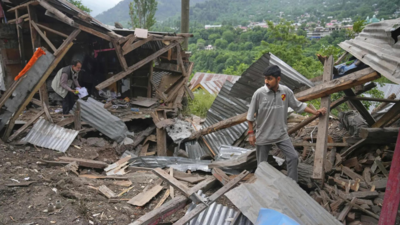New Delhi : As hostilities intensify between India and Pakistan following recent military exchanges, the All India Muslim Personal Law Board (AIMPLB) has issued a fervent call for peace, cautioning that armed conflict—especially between nuclear-armed neighbors—can never be a viable solution, reported the Times of India.
In a resolution adopted during an emergency online meeting, AIMPLB leaders expressed deep concern over the unfolding situation at the border. While affirming their support for India’s right to defend itself, they urged the public, political parties, armed forces, and government to stand united in these critical times.
The Board strongly condemned all forms of terrorism and the killing of innocent civilians, reiterating that such acts have no place in Islam or in any system that upholds universally accepted human values. “There is absolutely no place for terrorism in Islamic teachings, globally recognised principles, and human values,” the statement declared.
Responding to the recent terror attack in Pahalgam and India’s subsequent launch of Operation Sindoor, the AIMPLB emphasized that diplomatic engagement, not military escalation, is the only path toward lasting peace. “War does not solve any problem—particularly between two nations armed with nuclear weapons. Dialogue is not a choice but a necessity,” the Board stated.
Operation Sindoor was launched in retaliation to the April 22 attack, with Indian forces targeting multiple terror camps in Pakistan and Pakistan-occupied Kashmir. Since then, Pakistan has made several failed attempts to strike Indian military bases across Jammu, Pathankot, Amritsar, and Udhampur. India’s defence ministry confirmed that all threats were neutralized using advanced anti-drone and missile systems.
Meanwhile, Defence Minister Rajnath Singh chaired a series of high-level security meetings to monitor the situation, while border areas in Punjab, Rajasthan, and Himachal Pradesh experienced blackouts and heightened alert. Schools were closed, and emergency protocols were activated, with communities gathering in gurdwaras and mosques to pray for peace.
The AIMPLB’s appeal comes at a crucial moment, aiming to steer public discourse away from war rhetoric and toward reasoned, constructive engagement.




